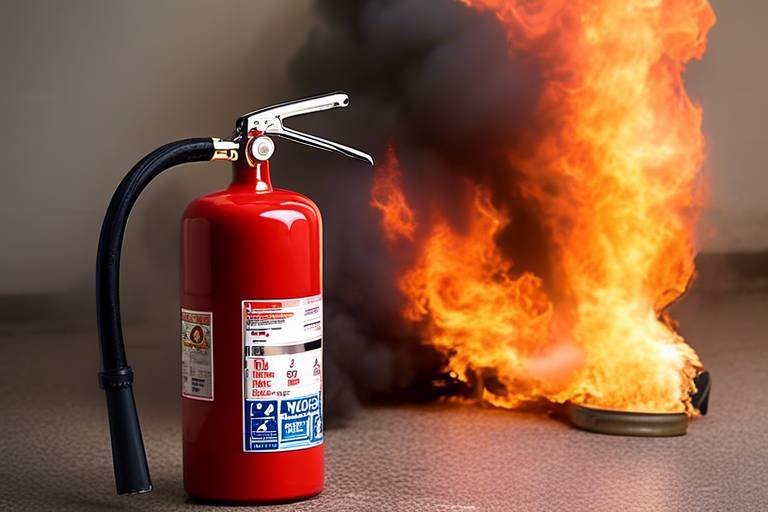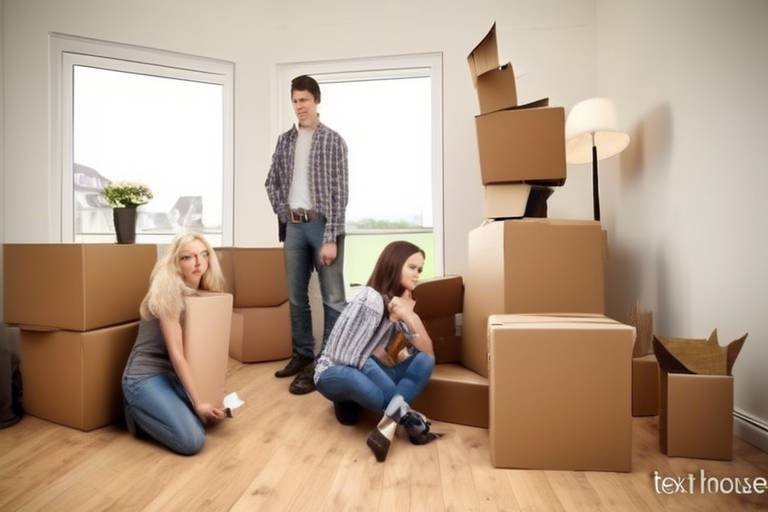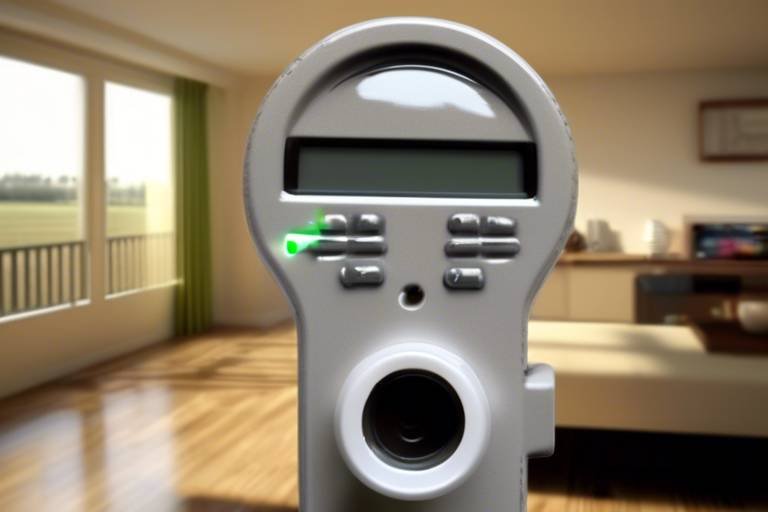Are Hidden Cameras a Good Idea for Your Home?
In today's world, where security concerns are at an all-time high, many homeowners are contemplating the installation of hidden cameras in their residences. But are they truly a good idea? This question is not as straightforward as it seems. On one hand, hidden cameras can act as a powerful deterrent against crime and provide crucial evidence in case of incidents. On the other hand, they raise serious privacy concerns and legal implications that every homeowner should be aware of. So, let’s dive deeper into the pros and cons of hidden cameras to help you make an informed decision.
First and foremost, let's talk about the benefits. Hidden cameras can significantly enhance your home security. Imagine this: a burglar approaches your home, only to be deterred by the knowledge that they might be caught on camera. This sense of surveillance can be enough to make criminals think twice before targeting your property. Moreover, if a crime does occur, having video evidence can be invaluable for law enforcement and insurance claims. In essence, hidden cameras can provide peace of mind, knowing that you have an extra layer of protection in place.
While the security benefits are compelling, we must also address the elephant in the room: privacy concerns. It's crucial to recognize that installing hidden cameras can lead to significant privacy issues, especially if they are placed in areas where individuals expect a reasonable level of privacy, such as bedrooms or bathrooms. Striking a balance between safety and personal privacy is essential. Nobody wants to be the neighbor who invades the privacy of guests or family members. So, how do you navigate this tricky terrain?
Understanding the legal landscape surrounding hidden cameras is paramount. The legality of surveillance can vary greatly depending on your location and the context in which the cameras are used. Homeowners must familiarize themselves with the laws governing surveillance in their area to avoid potential legal troubles. Ignorance is not bliss when it comes to the law, and being caught on the wrong side of legalities can lead to hefty fines or worse.
When it comes to surveillance laws, there’s a patchwork of regulations at both the federal and state levels. For instance, while federal laws may allow for certain types of surveillance, your state might have stricter regulations that limit or prohibit hidden cameras altogether. It's essential to do your homework and understand these differences to ensure compliance.
Another critical aspect is consent. In many jurisdictions, recording individuals without their consent can land you in hot water. Some states require that all parties involved in a conversation be aware that they are being recorded. Ignoring these consent laws can lead to serious legal repercussions, so it's vital to understand your local laws before you hit that 'record' button.
Once you've navigated the legal maze, the next step is selecting the right hidden camera. With so many options available, it can feel overwhelming. Factors to consider include:
- Resolution: Higher resolution cameras provide clearer images, which can be crucial for identifying intruders.
- Storage Options: Consider whether you want cloud storage or local storage and how much footage you need to keep.
- Connectivity: Wi-Fi-enabled cameras allow for remote monitoring, which can be a game-changer for busy homeowners.
Evaluating these features can help you find the best fit for your needs and ensure that your surveillance system meets your expectations.
The effectiveness of hidden cameras largely depends on their installation. Proper placement is key. You’ll want to consider angles, potential obstructions, and the areas you want to monitor. For instance, placing a camera in a corner can often provide a wider view of the room. However, it's not just about where you put the camera; it's also about how you install it.
When it comes to installation, you have two primary options: hiring a professional or going the DIY route. Each has its pros and cons. Professional installation often guarantees that the cameras are set up correctly and efficiently, but it can come at a higher cost. On the other hand, a DIY installation might save you money, but if you're not tech-savvy, it could lead to subpar performance. Weigh your options carefully before making a decision.
Last but not least, regular maintenance and monitoring of your hidden cameras are essential to ensure they function correctly. Establishing a routine to check camera performance and storage capacity can prevent unwanted surprises down the line. After all, what good is a camera if it’s not recording when you need it the most?
1. Are hidden cameras legal in my state?
It depends on your location. Always check local laws regarding surveillance and consent.
2. Can I use hidden cameras to monitor my babysitter?
Yes, but ensure you are compliant with consent laws and place the cameras in areas where privacy is not expected.
3. What should I look for in a hidden camera?
Focus on resolution, storage options, and connectivity features to find the best camera for your needs.
4. How do I maintain my hidden cameras?
Regularly check their performance and storage capacity to ensure they are functioning optimally.
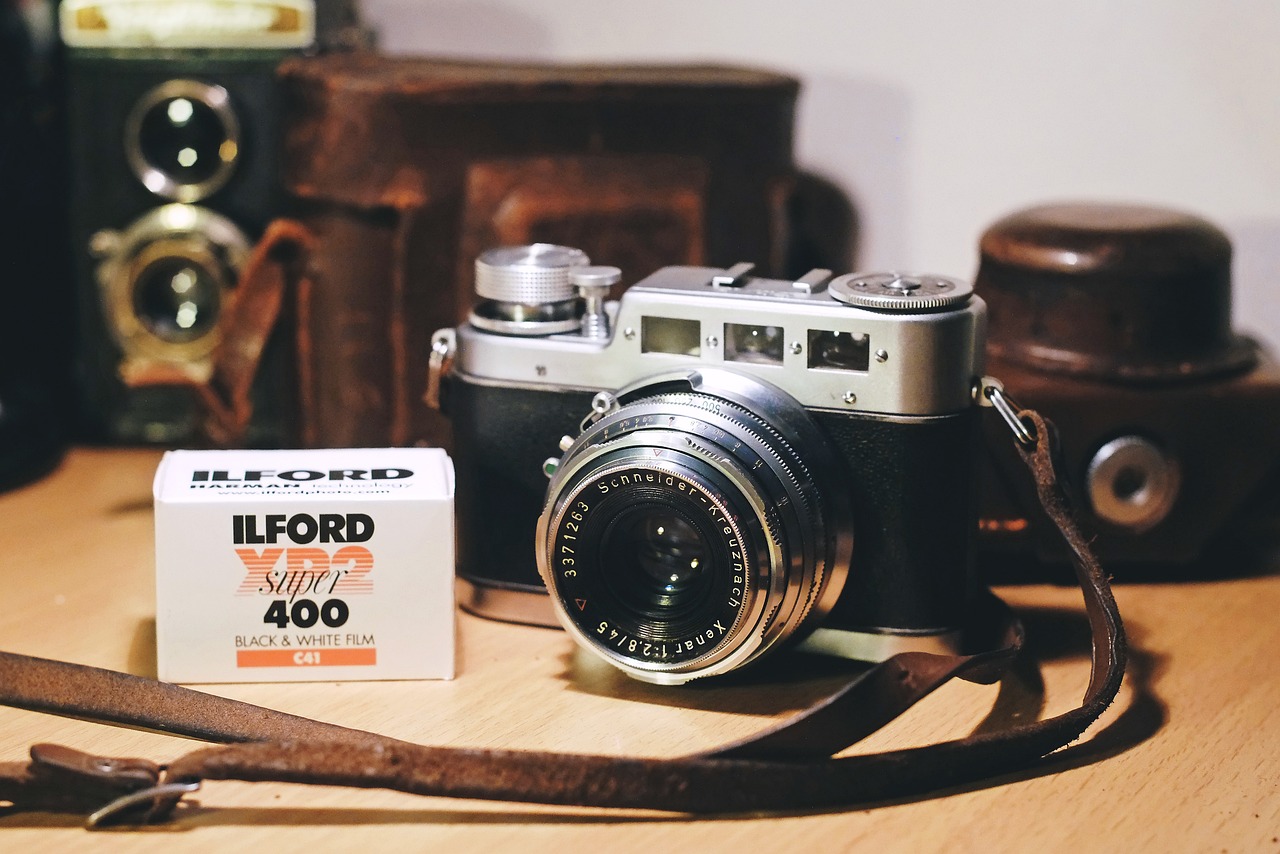
The Benefits of Hidden Cameras
When it comes to home security, the idea of installing hidden cameras can feel like a double-edged sword. On one hand, they offer a layer of protection that can give homeowners peace of mind, while on the other, they raise questions about privacy and ethics. But let’s focus on the positives first! Hidden cameras can significantly enhance the security of your home in various ways. For instance, they act as a deterrent against crime. When potential intruders see signs indicating the presence of surveillance, they might think twice about breaking in. It’s like putting up a “Beware of Dog” sign—even if you don’t have a dog, the mere suggestion of a threat can keep unwanted visitors at bay.
Moreover, hidden cameras can provide crucial evidence in case of incidents. Imagine a scenario where a package goes missing from your porch. With a hidden camera strategically placed, you can capture the entire event, which can help law enforcement or even assist in filing an insurance claim. This evidence can be invaluable, turning a frustrating situation into a solvable one.
Another benefit is the ability to monitor your home while you’re away. Many modern hidden cameras come equipped with features like live streaming and motion detection alerts. This means you can check in on your property in real-time from your smartphone, no matter where you are. Whether you’re on vacation or just running errands, having that kind of access can provide a sense of control and security that’s hard to beat.
Furthermore, hidden cameras can also be beneficial for monitoring household help. If you have cleaners, babysitters, or maintenance workers coming into your home, hidden cameras can ensure that they are performing their duties responsibly. It’s not about mistrust; it’s about ensuring safety for both your family and your property. Just like a coach watches their players from the sidelines, a homeowner can keep an eye on the goings-on in their home without being intrusive.
In summary, hidden cameras can be a powerful tool for enhancing security, providing evidence, and monitoring activities within your home. They serve as a proactive measure, allowing you to take charge of your safety while potentially deterring criminal activity. However, as we dive deeper into this topic, it’s essential to consider the other side of the coin—privacy concerns and legal implications—before making a final decision.
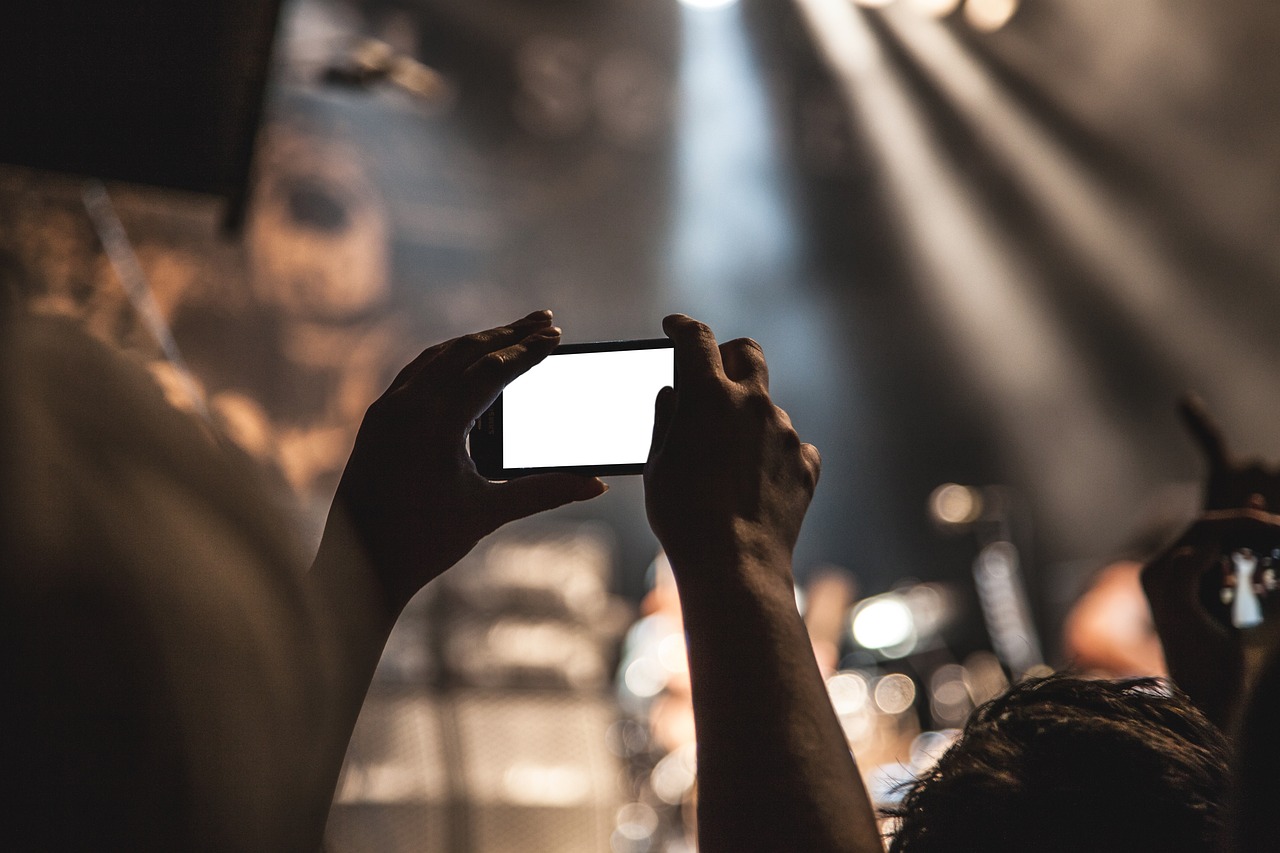
Privacy Concerns
When it comes to installing hidden cameras in your home, one of the most pressing issues that arises is the concern for privacy. While the allure of enhanced security can be tempting, it's essential to pause and reflect on what it means for the personal space of you and your loved ones. Imagine walking around your home, feeling safe and secure, only to discover that your every move has been monitored without your knowledge. The thought alone can send shivers down your spine!
Privacy is a fundamental right, and the presence of hidden cameras can create an atmosphere of distrust. Family members and guests may feel uncomfortable knowing they could be watched at any moment, leading to a tense home environment. This raises the question: is the peace of mind gained from surveillance worth the potential harm to relationships and personal comfort?
Moreover, there's a fine line between surveillance for security and invasion of privacy. While you might feel justified in monitoring common areas of your home, such as living rooms or backyards, placing cameras in private spaces like bedrooms or bathrooms crosses a significant boundary. Not only can this lead to feelings of violation, but it can also result in serious legal consequences. In many jurisdictions, recording someone without their consent in a private setting is illegal.
To navigate these murky waters, it's crucial to establish clear guidelines about where and how hidden cameras will be used. Consider the following:
- Common Areas: Installing cameras in shared spaces, like living rooms or entryways, is generally more acceptable.
- Notification: Informing family members and guests about the presence of cameras can help alleviate discomfort.
- Purpose: Be transparent about why you are using cameras. Is it for security, monitoring pets, or keeping an eye on children?
Ultimately, balancing security needs with respect for privacy can be challenging. It’s about finding that sweet spot where you feel secure without infringing on the personal space of others. Engaging in open conversations with family and friends about your intentions can foster trust and understanding, making it easier to navigate the complexities of hidden surveillance.
Q: Are hidden cameras legal to use in my home?
A: Yes, hidden cameras can be legal, but it depends on local laws and where the cameras are placed. Always check your local regulations.
Q: Do I need to inform people that they are being recorded?
A: In many jurisdictions, yes. Consent laws vary, so it’s essential to know the rules in your area.
Q: Can I install hidden cameras in my child's room?
A: While you may have good intentions, it’s generally not advisable to install cameras in private spaces such as bedrooms for privacy reasons.
Q: How can I ensure that my hidden cameras are not misused?
A: Establish clear guidelines on camera usage, and consider using password protection and encryption to secure the footage.
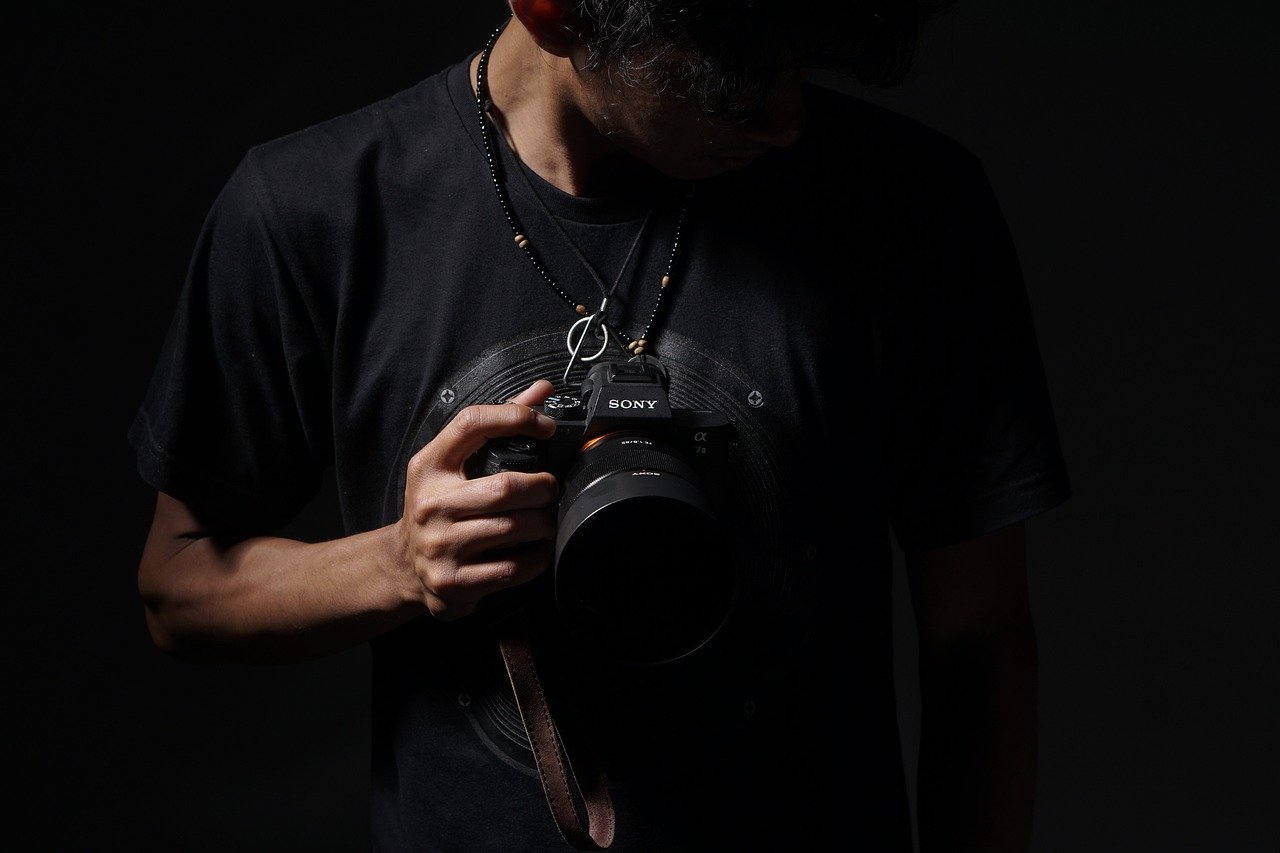
Legal Implications
When it comes to hidden cameras, the legal landscape can be as murky as a foggy morning. It's not just about your intention to enhance home security; it's about understanding the that come with surveillance. Depending on where you live, the laws governing the use of hidden cameras can vary significantly. Some states have stringent regulations, while others are more lenient. This inconsistency means that homeowners must do their homework before installing any surveillance equipment.
One of the primary concerns is whether you need to inform individuals that they are being recorded. In many areas, recording someone without their consent can lead to serious legal repercussions. For instance, some states require that all parties involved in a conversation give their consent before any recording can take place. This is often referred to as "two-party consent." On the flip side, there are states that operate under "one-party consent" laws, where only one person needs to be aware of the recording. Understanding these nuances is essential to avoid stepping into a legal minefield.
To illustrate the differences, here’s a simple table outlining the consent requirements in various states:
| State | Consent Requirement |
|---|---|
| California | Two-party consent |
| Texas | One-party consent |
| Florida | Two-party consent |
| New York | One-party consent |
Additionally, it's important to consider the context in which you are using hidden cameras. If you plan to monitor common areas of your home, like the living room or kitchen, you may face fewer legal hurdles compared to placing cameras in private spaces, such as bathrooms or bedrooms, which can lead to serious privacy violations. Always ask yourself: would you be comfortable if someone placed a camera in your personal space? If the answer is no, then it's likely that you could run into legal trouble.
Finally, keep in mind that even if you comply with state laws, you may still face civil lawsuits from individuals who feel their privacy was invaded. It's a good idea to consult with a legal professional to ensure that you're fully informed about the laws in your area. After all, understanding the legal implications of hidden cameras is just as crucial as the decision to install them in the first place.
- Are hidden cameras legal in my state? - It varies by state; always check local laws.
- Do I need consent to record someone? - Yes, in many states, consent is required.
- What are the consequences of illegal recording? - You could face fines or civil lawsuits.
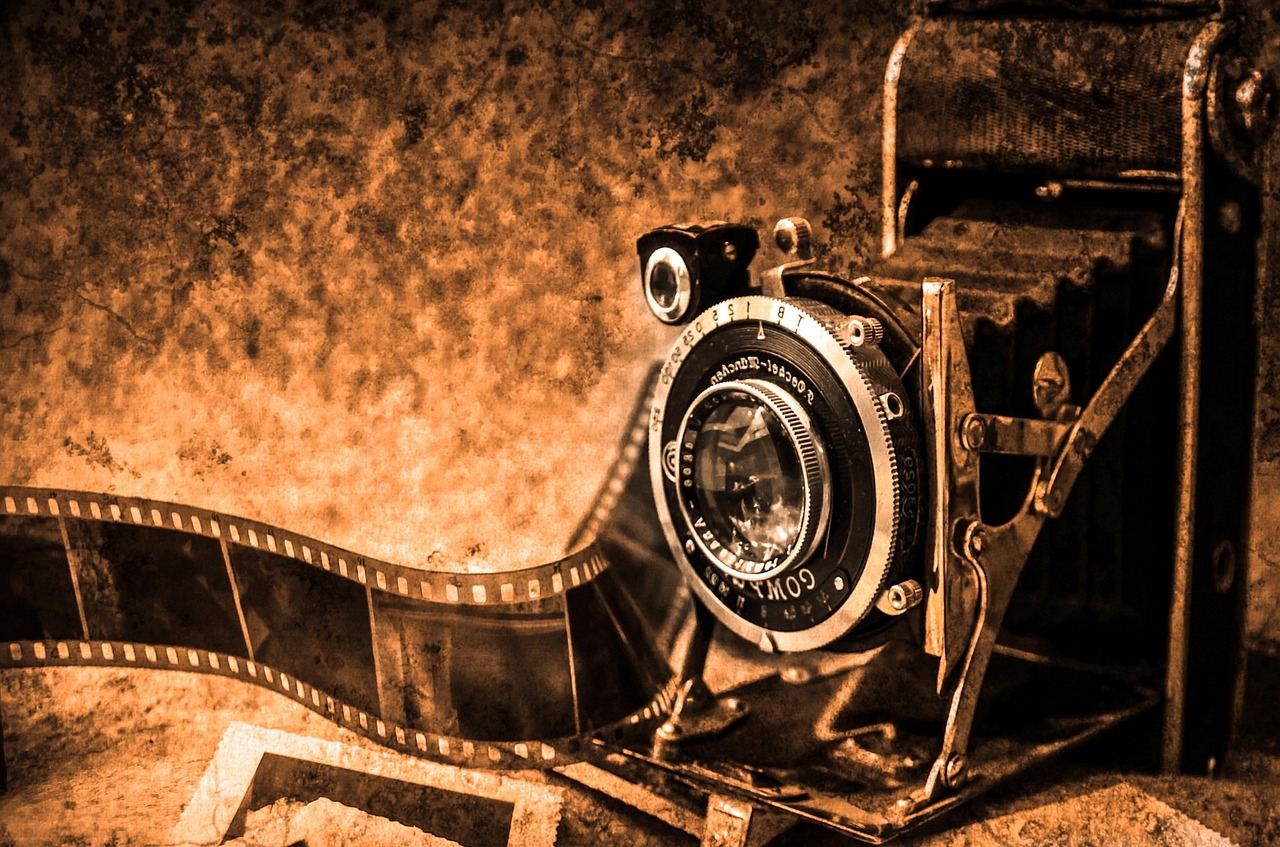
Federal vs. State Laws
When it comes to the legality of hidden cameras, the landscape can be quite complex, as laws can differ significantly between federal and state jurisdictions. At the federal level, the Electronic Communications Privacy Act (ECPA) sets certain guidelines regarding the interception of communications, but it does not explicitly address hidden cameras in private residences. This means that while federal law provides a baseline, it is often the state laws that dictate the specifics of surveillance practices.
Each state has its own regulations that can either tighten or loosen the restrictions on hidden camera use. For instance, some states require that all parties consent to being recorded, while others may allow for one-party consent. This means that in states with one-party consent laws, you can legally record someone without their knowledge, as long as you are part of the conversation. However, in two-party consent states, failing to obtain consent can lead to serious legal repercussions.
To illustrate the differences, here’s a brief overview of how various states approach hidden camera laws:
| State | Consent Requirement | Notes |
|---|---|---|
| California | Two-party consent | Recording without consent is illegal. |
| Texas | One-party consent | Legal to record if one party is aware. |
| Florida | Two-party consent | Strict penalties for unauthorized recording. |
| New York | One-party consent | Recording allowed if one party knows. |
Beyond consent, there are also specific regulations regarding where you can place hidden cameras. For example, recording in areas where individuals have a reasonable expectation of privacy, such as bathrooms or bedrooms, is generally prohibited regardless of state laws. This is where the nuances of both federal and state laws come into play.
It’s crucial for homeowners to familiarize themselves with the laws in their specific state before installing hidden cameras. Ignorance of the law is not a valid defense in court, and violations can lead to hefty fines or even criminal charges. Consulting with a legal expert or doing thorough research can save you from potential legal headaches down the line.
- Can I install hidden cameras in my home without telling anyone? It depends on your state laws. Some states require consent from all parties involved.
- What are the consequences of illegal surveillance? Consequences can range from fines to criminal charges, depending on the severity of the violation.
- Are there specific places where I cannot install cameras? Yes, areas where individuals have a reasonable expectation of privacy, such as bathrooms, are generally off-limits.
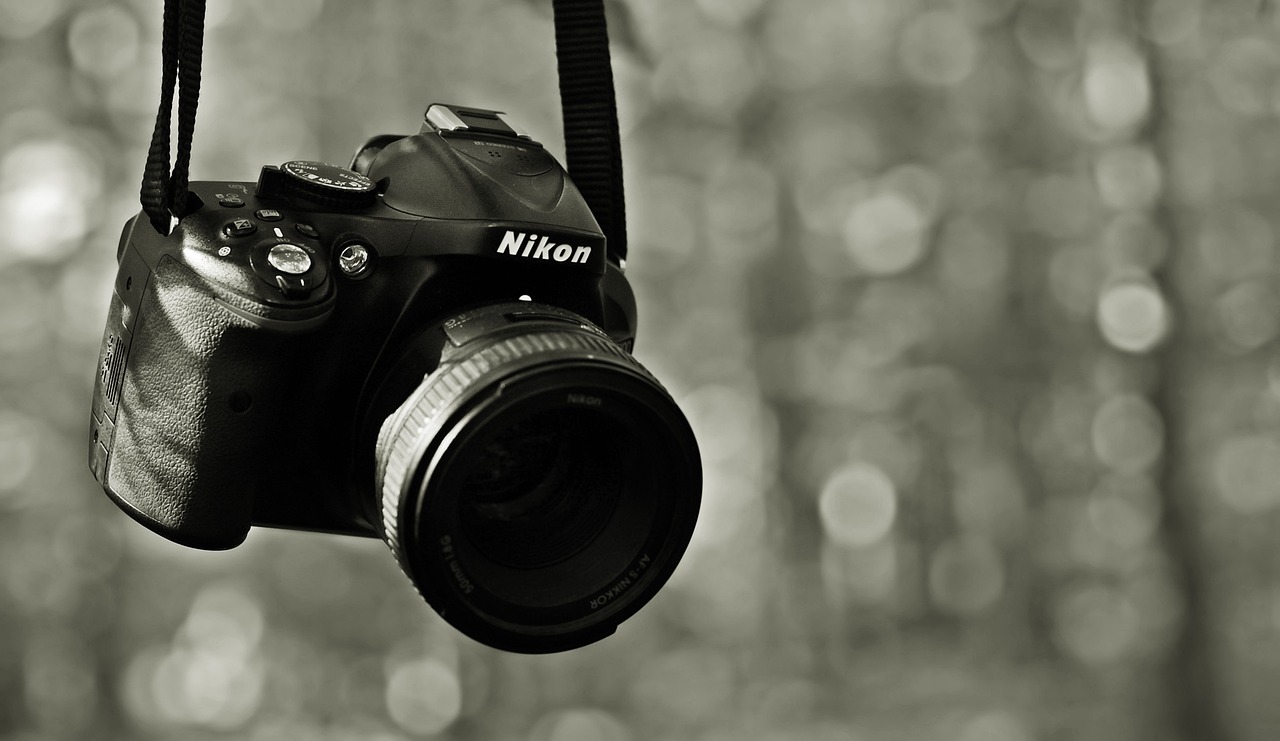
Consent Requirements
When considering the installation of hidden cameras in your home, one of the most critical aspects to understand is the . In many jurisdictions, recording individuals without their explicit consent can lead to serious legal consequences. This means that before you hit that 'record' button, you need to be fully aware of the laws governing surveillance in your area. It's not just about ensuring your safety; it's about respecting the privacy of those around you.
In general, consent laws can be divided into two main categories: one-party consent and two-party consent. In one-party consent states, you are allowed to record conversations or activities as long as one person involved in the conversation is aware of the recording. On the other hand, in two-party consent states, all parties involved must be notified and agree to the recording. This distinction is crucial, as violating consent laws can result in hefty fines or even criminal charges.
Here’s a quick breakdown of how these consent laws generally work:
| Type of Consent | Description | States/Regions |
|---|---|---|
| One-Party Consent | Only one person needs to be aware of the recording. | Majority of states in the U.S. |
| Two-Party Consent | All parties involved must consent to the recording. | California, Florida, Illinois, and others |
It's also important to note that even in one-party consent states, there are often exceptions. For instance, if you are recording in a place where individuals have a reasonable expectation of privacy—like a bathroom or a bedroom—consent may still be required. This adds another layer of complexity to the situation, making it imperative to do thorough research before installing any surveillance equipment.
Moreover, if you plan to share the footage or use it for any public purpose, you may need additional consent from those recorded. This not only protects you legally but also fosters trust within your household and among visitors. Remember, the goal is to create a safe environment without infringing on anyone's personal space.
In conclusion, understanding consent requirements is not just about following the law; it's about maintaining ethical standards in your surveillance practices. By being informed and respectful, you can balance your security needs with the privacy rights of others, ensuring a harmonious living space.
- Do I need consent to install hidden cameras in my own home? - Yes, if you are recording in areas where people have a reasonable expectation of privacy, you usually need their consent.
- What happens if I violate consent laws? - Violating consent laws can lead to fines, lawsuits, or even criminal charges depending on the severity of the violation.
- Can I use hidden camera footage in court? - It depends on the legality of how the footage was obtained. If it was recorded legally, it may be admissible in court.
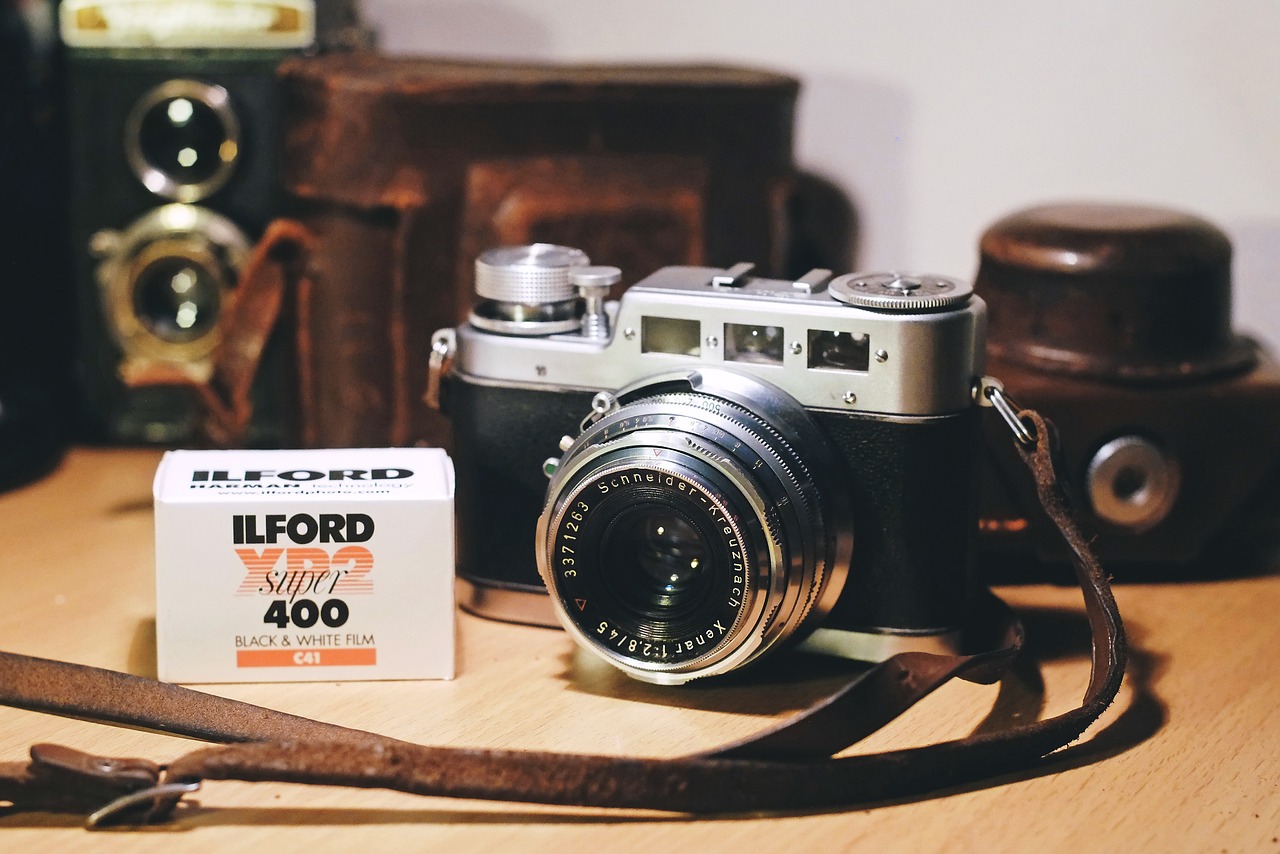
Choosing the Right Camera
When it comes to choosing the right hidden camera for your home, it’s not just about picking the first one you see online. It’s a bit like choosing a new pair of shoes; you want something that fits well, looks good, and serves its purpose effectively. There are several key factors to consider that can make or break your decision.
First and foremost, think about the resolution of the camera. Just like how you wouldn’t want to watch your favorite movie on a blurry screen, you don’t want to miss crucial details in your surveillance footage. High-definition (HD) cameras provide clearer images, which can be vital if you need to identify faces or details in the footage. Look for options that offer at least 1080p resolution for optimal clarity.
Next, let’s talk about storage options. Hidden cameras can either store footage locally on a memory card or upload it to the cloud. Local storage is often less expensive, but it comes with the risk of losing footage if the camera is stolen or damaged. On the other hand, cloud storage usually requires a subscription but offers peace of mind, as your footage is safely stored online. Think about how much storage you’ll need based on how often you plan to review the footage and how long you want to keep it.
Another important factor is connectivity. Many modern hidden cameras come with Wi-Fi capabilities, allowing you to view live footage from your smartphone or tablet. This feature is incredibly convenient, especially if you’re away from home and want to keep an eye on things. However, if your Wi-Fi network is unstable, it might lead to interruptions in your surveillance. Always consider the strength of your home’s Wi-Fi connection when choosing a camera.
Finally, think about the design and placement of the camera. Some hidden cameras are designed to blend seamlessly into your home décor, while others are more conspicuous. Depending on your needs, you might prefer a camera that looks like a regular household item, such as a clock or a smoke detector, to avoid drawing attention. The placement of the camera is equally crucial; ensure it covers the areas you want to monitor without obstructions.
In summary, selecting the right hidden camera is a multifaceted decision that requires careful consideration. By focusing on resolution, storage options, connectivity, and design, you can find a camera that not only meets your security needs but also fits seamlessly into your home. Remember, a well-chosen camera can provide you with the peace of mind you deserve.
- What is the best resolution for a hidden camera? Aim for at least 1080p for clear images.
- Should I choose local storage or cloud storage? It depends on your needs; cloud storage offers more security but may require a subscription.
- Can I view my hidden camera footage remotely? Yes, many modern cameras offer Wi-Fi connectivity for remote viewing.
- How important is the design of the camera? It can be crucial for discreet monitoring; choose a design that blends with your environment.
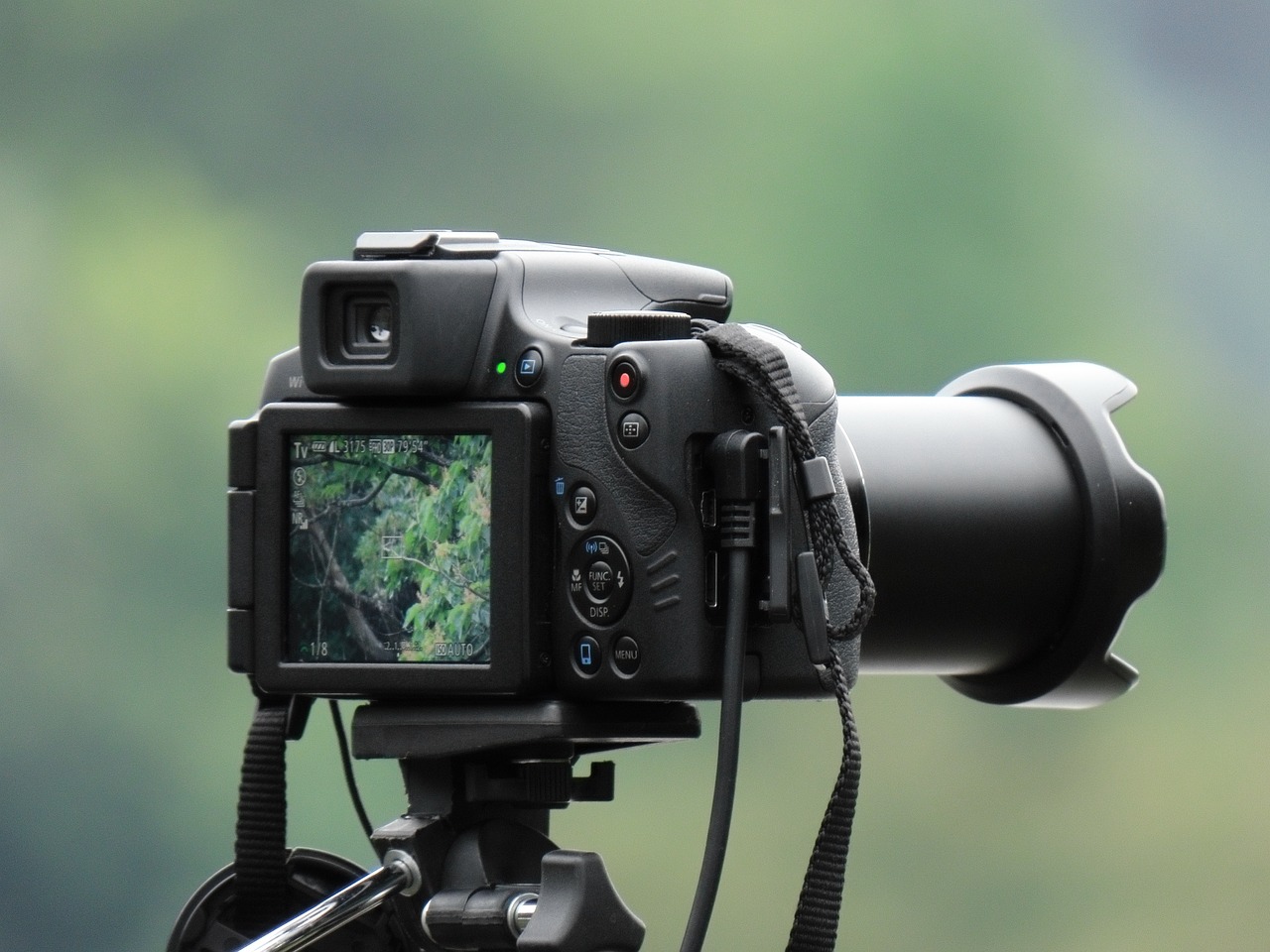
Installation Considerations
When it comes to installing hidden cameras in your home, there’s a lot more to think about than just picking a spot and plugging it in. The effectiveness of your surveillance system hinges on several factors, including placement, angles, and potential obstructions. Imagine trying to capture a beautiful sunset; if you're facing the wrong direction, you’ll miss the magic. Similarly, the wrong camera placement can render your security efforts useless.
First and foremost, consider the placement of your cameras. You want to position them in areas that provide the best visibility of high-traffic zones, such as entrances, living rooms, or backyards. Think of your home as a stage, and the cameras as the audience; they need a clear view of the action. Avoid placing cameras in corners where they can be easily obstructed by furniture or plants. Additionally, make sure that they are not too high up or too low down, as this can affect the quality of the footage you capture.
Next, let’s talk about angles. The angle at which your camera is installed can significantly impact its performance. A camera positioned at too steep of an angle might miss important details or fail to capture faces clearly. Ideally, the camera should be angled slightly downward to ensure it captures the most relevant action. If you think of a camera as a flashlight, you want the beam to light up the area you care about most, not just a random corner of the room.
Another crucial aspect to consider is potential obstructions. Before you finalize your installation, take a moment to assess your surroundings. Are there any objects that could block the camera's view? This could be anything from curtains to shelves. It’s also wise to think about lighting conditions; a camera in a dark corner may not be effective unless it has night vision capabilities. In some cases, you might even want to invest in additional lighting to ensure your camera captures clear images, day or night.
Now, let’s not forget about the technical aspects of installation. Some cameras require Wi-Fi for streaming and storage, while others might need to be hardwired into your home’s electrical system. If you’re going the DIY route, make sure you understand the setup process for your specific camera model. However, if the technical side feels overwhelming, hiring a professional could be a wise investment. They can ensure that everything is set up correctly and functioning optimally, giving you peace of mind.
Lastly, once your cameras are installed, regular maintenance is key. Just like a car needs oil changes, your cameras need routine checks to ensure they are operating efficiently. This includes cleaning the lenses, checking for software updates, and verifying that storage is not full. Establishing a routine for these checks can help prevent any surprises when you need to access footage the most.
- What is the best placement for hidden cameras? Ideally, place them in high-traffic areas like entrances or living rooms, ensuring they have a clear line of sight.
- Do I need professional installation? It depends on your comfort level with technology. If in doubt, a professional can ensure everything is set up correctly.
- How often should I check my cameras? Regular checks are recommended, ideally monthly, to maintain optimal performance.
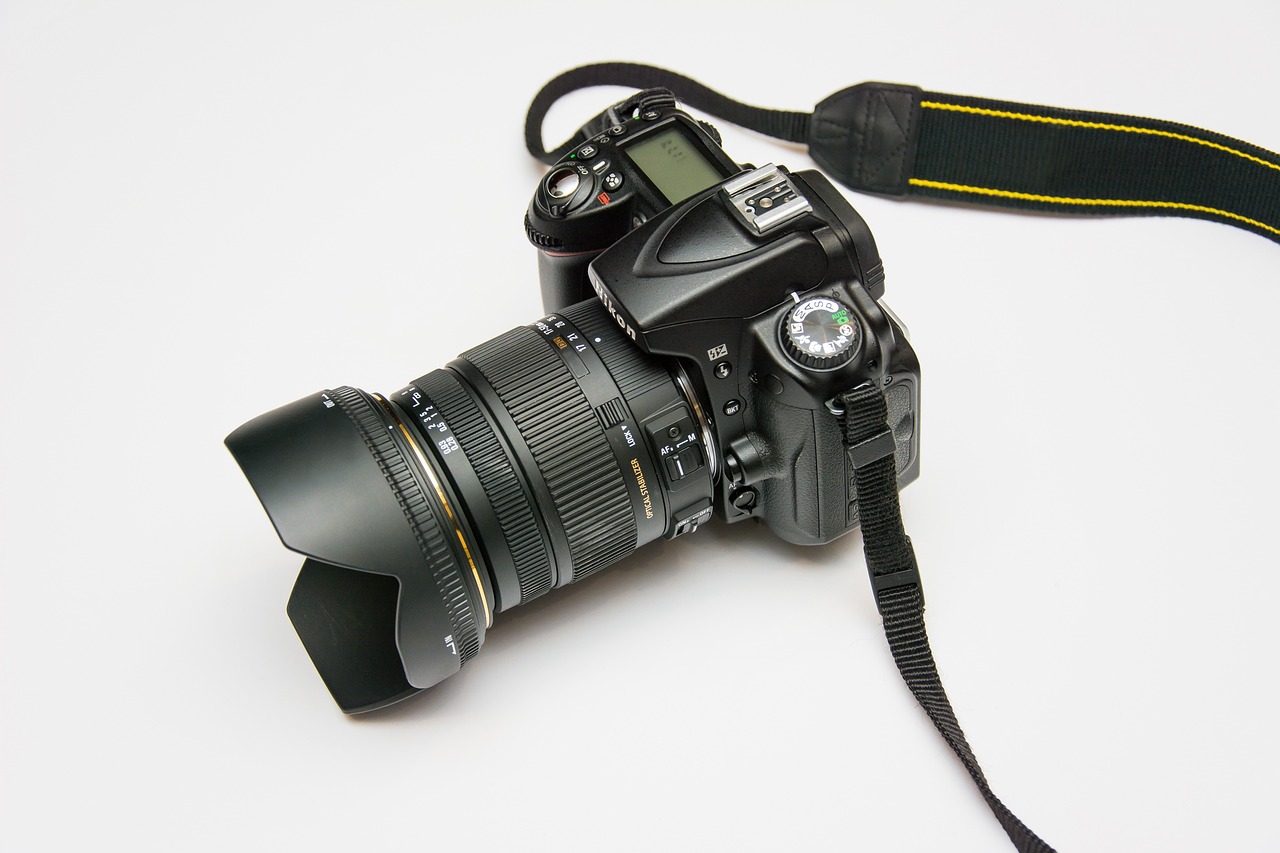
Professional vs. DIY Installation
When it comes to installing hidden cameras in your home, one of the first decisions you'll face is whether to go with a professional installation or to tackle the project yourself with a DIY approach. Each option has its own set of advantages and disadvantages, and understanding these can help you make an informed choice that suits your needs and comfort level.
Choosing a professional installation often means you’re opting for expertise and experience. Professionals are typically well-versed in the latest technologies and can recommend the best cameras based on your specific requirements. They know how to position cameras for optimal coverage, minimizing blind spots and maximizing security. Plus, they handle all the technical details, which is great if you’re not particularly tech-savvy. However, this convenience comes at a cost, and professional services can be quite pricey, depending on the complexity of the installation.
On the flip side, a DIY installation can be a rewarding experience that saves you money. If you're handy and enjoy working on home improvement projects, installing hidden cameras yourself can be quite satisfying. You have complete control over the placement and setup, which allows for a more personalized approach. However, this route does come with its challenges. You’ll need to research the best cameras, understand how to set them up, and ensure they’re functioning correctly. Additionally, if something goes wrong, you won't have a professional to turn to for troubleshooting.
To help you weigh your options, here’s a quick comparison of the two approaches:
| Criteria | Professional Installation | DIY Installation |
|---|---|---|
| Cost | Higher initial cost | Lower initial cost |
| Expertise | Professional knowledge and experience | Requires personal research and skills |
| Time | Typically faster installation | Can take longer, depending on skill level |
| Customization | Limited to the professional's suggestions | Full control over placement and setup |
| Support | Ongoing support from the installer | Self-supported; must troubleshoot independently |
Ultimately, the choice between professional and DIY installation boils down to your personal preferences, budget, and technical ability. If you value convenience and peace of mind, hiring a professional may be the way to go. However, if you’re looking to save money and enjoy a hands-on project, a DIY installation can be a fulfilling option. Just remember, whichever route you choose, the goal is to enhance your home security effectively.
- What are the best hidden cameras for home use? There are various options available, including wireless cameras, battery-operated models, and those with night vision capabilities.
- Do I need a permit to install hidden cameras? It depends on your local laws. Always check your state and federal regulations before installation.
- How can I ensure my hidden cameras are secure? Use strong passwords, regularly update your software, and consider using cameras that offer encryption.

Maintenance and Monitoring
When it comes to hidden cameras, maintenance and monitoring are not just afterthoughts; they are essential components that ensure your surveillance system operates at peak efficiency. Imagine purchasing a high-tech camera system only to find out it hasn’t recorded anything for weeks because of a simple oversight! Regular maintenance is like giving your camera system a health check-up, ensuring everything is functioning as it should. This includes checking the camera lenses for dust or obstructions, verifying that the power supply is stable, and confirming that the camera is securely mounted.
Monitoring is equally important. It’s not enough to just set up your cameras and forget about them. You need to actively check recorded footage and live feeds to ensure that they are capturing the intended areas without any issues. This can be done through your smartphone or computer, allowing you to keep an eye on your home from anywhere. Think of it as being the watchful guardian of your castle, always ready to respond to any suspicious activity. You wouldn’t want to miss a crucial moment because your camera was offline or malfunctioning!
To help you get started, here are some key aspects to consider for maintaining and monitoring your hidden camera system:
- Regular Checks: Schedule routine checks to inspect camera functionality and storage capacity.
- Software Updates: Keep your camera's firmware and software updated to ensure you have the latest features and security patches.
- Storage Management: Regularly review and manage recorded footage to avoid running out of storage space, which could lead to missed recordings.
- Battery Life: If your cameras are battery-operated, make it a point to check their battery levels frequently.
By establishing a routine for maintenance and monitoring, you can ensure that your hidden cameras are always ready to serve their purpose. Additionally, consider setting up alerts or notifications on your devices to inform you of any unusual activity detected by the cameras. This proactive approach not only enhances your security but also provides peace of mind, knowing that you are taking all necessary steps to protect your home.
Q: How often should I check my hidden cameras?
A: It's advisable to check your hidden cameras at least once a month. However, if you notice any issues or if your cameras are heavily used, you may want to check them more frequently.
Q: What should I do if my camera isn’t recording?
A: First, check the power supply and ensure the camera is properly connected. Then, verify the storage space and make sure there are no obstructions. If the issue persists, consult the user manual or contact customer support.
Q: Can I monitor my hidden cameras remotely?
A: Yes, most modern hidden cameras come with mobile apps or web interfaces that allow you to monitor live feeds and recorded footage from anywhere with an internet connection.
Q: Do I need to inform people that they are being recorded?
A: Yes, in many jurisdictions, it is necessary to inform individuals that they are being recorded, especially in private settings. Always check local laws regarding surveillance and consent.
Frequently Asked Questions
- Are hidden cameras legal to install in my home?
The legality of hidden cameras varies depending on your location. It's crucial to check both federal and state laws to ensure compliance. In some areas, you may need to inform individuals that they are being recorded, especially if the camera is in a private space.
- Can hidden cameras be used for security purposes?
Absolutely! Hidden cameras can serve as a powerful tool for enhancing home security. They can deter potential criminals and provide valuable evidence in case of incidents, giving you peace of mind while you're away.
- What are the privacy concerns associated with hidden cameras?
While hidden cameras can improve security, they also raise significant privacy issues. It's essential to balance safety with respect for personal privacy. Installing cameras in areas where people expect privacy, like bathrooms or bedrooms, can lead to legal troubles and ethical dilemmas.
- Do I need consent to record someone with a hidden camera?
In many jurisdictions, recording someone without their consent can be illegal. Understanding the consent laws in your area is vital to avoid any legal repercussions. Always consider informing guests or household members about the presence of cameras.
- How do I choose the right hidden camera for my home?
Choosing the right hidden camera involves evaluating several factors, including resolution, storage options, and connectivity features. Think about your specific needs and where you plan to install the camera to find the best fit.
- Should I hire a professional to install my hidden cameras?
Deciding between professional installation or a DIY approach depends on your technical skills and budget. Professional installation can ensure optimal placement and functionality, while a DIY approach may save you money but requires careful planning.
- How often should I check my hidden cameras?
Regular maintenance and monitoring are essential for ensuring your hidden cameras function correctly. Establishing a routine to check camera performance, storage capacity, and battery life will help you maintain effective surveillance.










